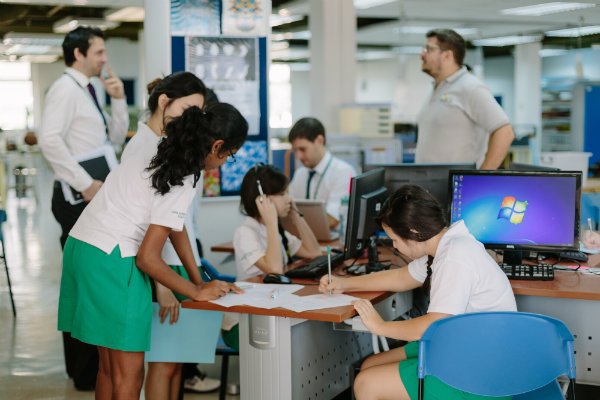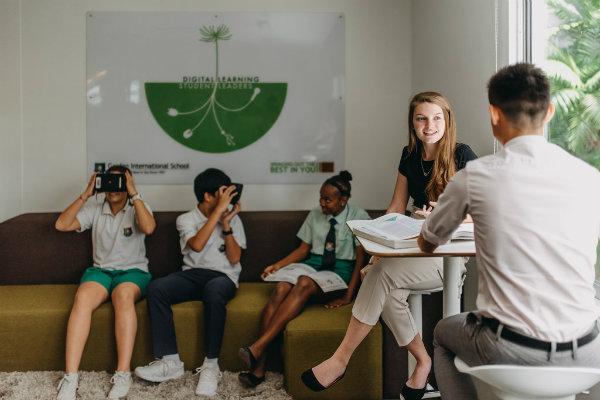Wanting a Different Learning Culture
Published by SchoolAdvisor | Oct 02, 2017International schools started by catering to students who were not nationals of the host country, such as the children of staff of multinational businesses, international organisations, embassies, missions or missionary programmes.

However, more than 70% of the 3.5 million children attending English-language international schools across the world today are actually local children, and in Malaysia the number of international schools, as well as the number of children attending them has surged in the past five years.
International schools are now no longer just the domain of expatriate children.
Latest data shows that there are 7,017 international schools around the world, 56% of which are in Asia. It is estimated that more than two thirds of the total 3.5 million international school students are local children who seek a quality, English-medium education.
As one of the oldest and most established international schools in Southeast Asia, Garden International School took on the mission of working on a research paper regarding this growing trend: locals who attend international schools. Here we explore some of the highlights of the study.
For most parents, it’s about giving their children the best chance of success in an increasingly competitive world, and that means an ability to speak English and think critically. For many, the understanding of local culture and history is secondary.
Garden International School parent Hasliza Zakaria, 43, studied and worked overseas. When she returned home she found herself shocked by the disciplinarian nature of the local schools.
“Having experienced the education systems in the US and UK, I can see the benefit,” says the mother of two. “(These schools’ approaches) give children the opportunity to grow, and the chance to speak up.”
“I was sent abroad because of the education system here then, to be given exposure to that holistic approach to learning,” recalls Sharifah, 49, who has been a parent at GIS for more than 10 years. “But I don’t have to do that with my kids because the education system has been brought over here.
“My children have the best of both worlds. They get the international school or British curriculum, but they also get to be close to their family.”
Parents see the benefit of their children being taught in English – a key motivation for parents in this globalised world – the bonus of being exposed to new learning pedagogies and the opportunity to learn alongside children from a dizzying number of countries.

“GIS has been offering excellent international education to its students for over 65 years,” explains Mark Ford, the Principal at GIS. “The need and profile of our international cohort has been changing over time and while maintaining strong education values, we do adapt our support to our evolving community. With more than 70 different nationalities at GIS, the mix of cultures is amazing; we are all international, but we each have our own characteristics. We bond on what is common to all of us – international exposure – while celebrating what makes each one of us unique (our culture and values).”
GIS holds workshops with parents to nurture cross-cultural understanding among pupils and their families. Workshops are held every week. They provide an opportunity for parents to learn more about school life but also to raise their own concerns. Sometimes the school’s counsellor leads the discussion. Coffee mornings, and volunteering also bring school and families closer together.
“For families who aren’t familiar with the British curriculum, it can be difficult to understand how the school works because it is so different from what they’re used to,” says Matthew Sheldon, a teacher at GIS, who leads many of the parent workshops.
“Our weekly parent workshops are designed to support the development of our parents, often with a focus on understanding and supporting their children. These workshops often focus on an area of the school, such as its curriculum or values. For those new to a British or international setting these are vital. Alternatively, they may focus on a topic that might be of interest to parents, for example how to use online learning platforms. Sometimes topics may relate to parenting; supporting our parents to support their children. Educating our parents and offering them the tools to better understand the educational environment of their children is an essential part of our learning culture.”
In a nutshell, it is the global culture coupled with the learning environment that contributes to the appeal of international schools to local parents. This unique setting continues to give local children a head start in an increasingly borderless world.
Recent Articles
- Beaconhouse Gasing Preschool: Leading Transformation with IEYC Curriculum Introduction
- BSKL and Charterhouse Grad Scores Dream Spot at New York University
- Leannie Liew’s Journey at Cempaka International School: Pushing Boundaries and Discovering Potential
- VOX ISKL: Leveraging Language Learning
- From elc to Harvard: Thamini Vijeyasingam’s Journey to Ivy League Excellence







 Login with Google
Login with Google